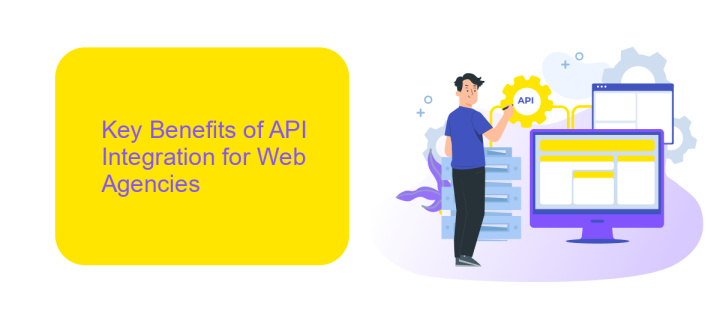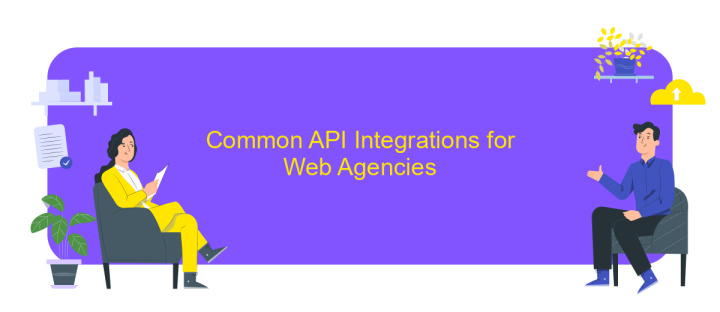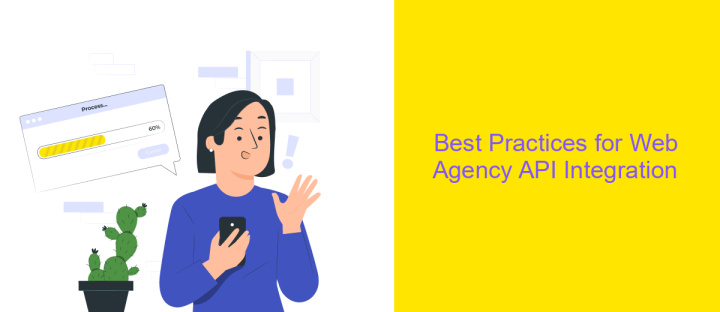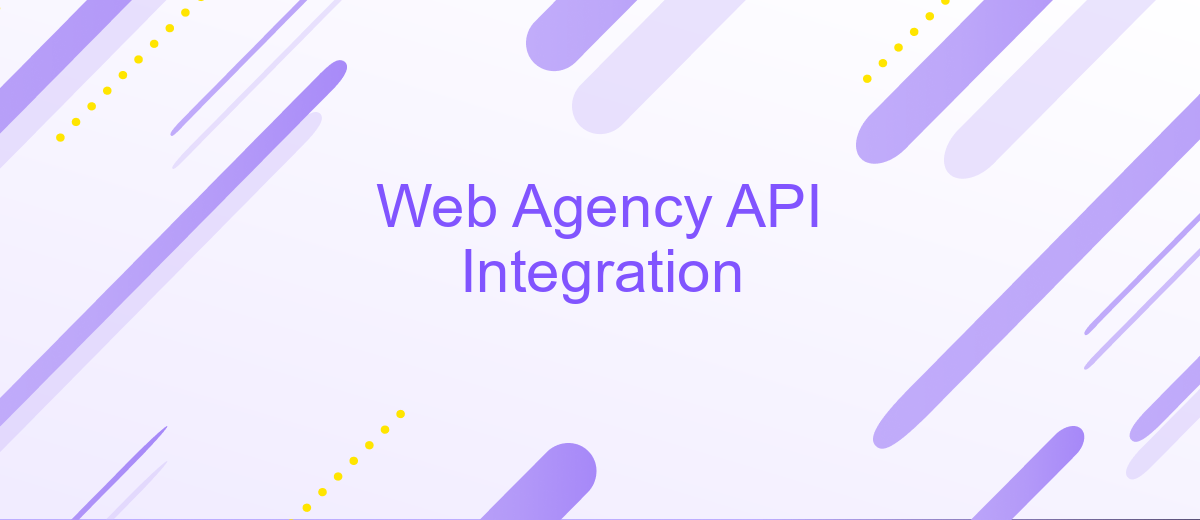Web Agency API Integration
In today's fast-paced digital landscape, web agencies are constantly seeking innovative ways to enhance their service offerings and streamline operations. API integration has emerged as a pivotal solution, enabling agencies to connect diverse software systems and automate workflows. By leveraging API integration, web agencies can deliver seamless user experiences, improve efficiency, and stay competitive in an ever-evolving market. This article explores the key benefits and strategies for successful API integration in web agencies.
Understanding Web Agency API Integrations
In today's digital landscape, web agencies are increasingly relying on API integrations to enhance their service offerings and streamline operations. APIs, or Application Programming Interfaces, allow different software systems to communicate with each other, enabling seamless data exchange and functionality sharing. For web agencies, integrating APIs can significantly improve efficiency by automating processes, reducing manual work, and providing clients with more robust solutions.
- APIs enable real-time data synchronization between platforms, ensuring consistent and up-to-date information.
- They allow for the incorporation of third-party services, such as payment gateways or social media feeds, into client websites.
- APIs can enhance user experience by integrating advanced features like geolocation or personalized content recommendations.
- They facilitate scalability, allowing agencies to expand their offerings without extensive redevelopment.
Understanding the nuances of API integration is crucial for web agencies aiming to deliver high-quality, innovative solutions. This involves not only technical proficiency in implementing APIs but also strategic insight into selecting the right APIs that align with client needs and business goals. By mastering API integrations, web agencies can position themselves as leaders in the competitive digital market.
Key Benefits of API Integration for Web Agencies

API integration offers web agencies numerous advantages, streamlining operations and enhancing service offerings. By connecting diverse software systems, APIs enable seamless data exchange, reducing manual data entry and minimizing errors. This leads to increased efficiency, allowing agencies to focus on core activities like strategy and creativity. Moreover, APIs facilitate the creation of more personalized user experiences by integrating various third-party services and tools, thereby enhancing client satisfaction and retention.
For web agencies looking to simplify the integration process, services like ApiX-Drive offer valuable solutions. ApiX-Drive provides a user-friendly platform that automates the connection between different applications, eliminating the need for extensive coding knowledge. This not only saves time but also reduces operational costs. By leveraging such tools, agencies can quickly implement and manage integrations, ensuring that they remain competitive in a rapidly evolving digital landscape. Overall, API integration is a crucial component for web agencies aiming to deliver comprehensive digital solutions efficiently.
Common API Integrations for Web Agencies

Web agencies frequently rely on API integrations to enhance functionality and streamline operations. These integrations enable seamless communication between various software systems, providing a more cohesive user experience. By leveraging APIs, web agencies can automate tasks, improve data accuracy, and expand their service offerings.
- Payment Gateways: Integrating APIs from payment processors like Stripe or PayPal allows agencies to offer secure, efficient payment solutions for e-commerce platforms.
- Social Media Platforms: APIs from Facebook, Twitter, or Instagram enable content sharing, social login features, and analytics gathering, enhancing social media strategies.
- Email Marketing Tools: Integrating with platforms like Mailchimp or SendGrid helps automate email campaigns, track performance, and manage subscriber lists.
- CRM Systems: APIs from Salesforce or HubSpot allow for efficient customer data management, enhancing client relationship strategies and sales processes.
- Analytics Services: Google Analytics or Mixpanel APIs provide valuable insights into user behavior, helping agencies optimize websites for better performance.
By selecting the right API integrations, web agencies can significantly improve their service delivery and operational efficiency. These integrations not only enhance the functionality of web applications but also offer clients a more comprehensive and satisfying digital experience. Staying updated with the latest API developments ensures that agencies remain competitive and innovative in the rapidly evolving digital landscape.
Best Practices for Web Agency API Integration

When integrating APIs for a web agency, it's crucial to ensure a seamless connection between various systems and services. Proper API integration can enhance functionality, improve user experience, and streamline operations. However, achieving this requires careful planning and execution.
Firstly, understanding the API documentation thoroughly is essential. This involves recognizing the capabilities, limitations, and requirements of the API. A comprehensive understanding helps in designing a robust integration strategy that aligns with business objectives and technical constraints.
- Ensure secure authentication and authorization processes to protect sensitive data.
- Implement error handling mechanisms to manage unexpected issues gracefully.
- Optimize API calls to reduce latency and improve performance.
- Regularly monitor and update the integration to accommodate any changes in the API.
Finally, collaboration between developers, project managers, and stakeholders is key to a successful integration. Continuous communication ensures that everyone is aligned with the project goals and can address potential challenges proactively. By following these best practices, web agencies can create efficient and reliable API integrations that drive business success.


Future Trends in Web Agency API Integrations
As web agencies continue to evolve, API integrations are set to play an even more crucial role in streamlining operations and enhancing client services. The future will see a rise in the demand for seamless, real-time data exchange between diverse platforms, allowing agencies to offer more personalized and efficient solutions. This trend is driven by the need for businesses to stay competitive by leveraging the latest technologies to enhance user experience and operational efficiency. As a result, agencies will increasingly rely on comprehensive integration platforms to manage these complex connections effortlessly.
One of the key future trends in API integration is the shift toward more user-friendly, no-code or low-code platforms, such as ApiX-Drive. These platforms empower agencies to set up and manage integrations without needing extensive technical expertise, reducing costs and implementation time. Additionally, as AI and machine learning technologies advance, we can expect APIs to become more intelligent, offering predictive analytics and automated decision-making capabilities. This evolution will enable web agencies to deliver more innovative and adaptive solutions to their clients, keeping them ahead in a rapidly changing digital landscape.
FAQ
What is API integration in the context of a web agency?
How can API integration benefit my web agency?
What are the common challenges faced during API integration?
How can I ensure data security during API integration?
Can I integrate APIs without extensive coding knowledge?
Do you want to achieve your goals in business, career and life faster and better? Do it with ApiX-Drive – a tool that will remove a significant part of the routine from workflows and free up additional time to achieve your goals. Test the capabilities of Apix-Drive for free – see for yourself the effectiveness of the tool.

